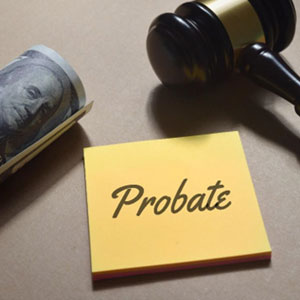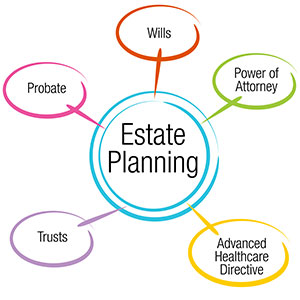
In this article, you can discover… The unique characteristics of elder law. Common challenges faced by seniors and how elder law can help them. How an attorney can help protect your rights and interests as an elder. What Is Elder Law And How Does It Differ From Other Legal Fields? Elder law covers a variety of legal categories that impact older adults, and there is some degree of intersection with estate planning. Elder law is focused on the needs of older people with disabilities, dementia, and vulnerabilities, addressing quality of life issues and paying for long-term care. What Are The Legal Rights Of Seniors Under Elder Law In Florida? Seniors have many rights under elder law in Florida. For example, if a senior is part of incapacity proceedings for a elder law case,…Read More

In this article, you can discover… The role and benefits of a trust protector. The difference between a trust protector and a trustee. When to appoint or remove a trust protector. What Is A Trust Protector? A trust protector is named within the trust or is appointed by the court. They exercise certain powers over the trust and are given special legal oversight. The trust protector, however, is limited by what the terms of the trust allow them to do and can only make certain changes as needed. How Does A Trust Protector Differ From A Trustee In Florida? Both a trustee and a trust protector have a fiduciary duty to the beneficiaries. Both have certain important legal responsibilities. However, the trust protector differs in that they are not the initial person named…Read More

In this article, you can discover: How notifying creditors is a crucial step in estate administration. The role of the probate court in overseeing creditor notifications. The process of settling debts and the limitations on creditors in probate cases. What Is The Purpose Of Notifying Creditors During The Probate Process? Navigating the probate process can be a complex journey, especially when it comes to dealing with creditors. The law mandates that we notify creditors during this process. This notification serves a dual purpose: it informs creditors of the decedent's passing and sets a clear deadline for them to file any claims. This step is crucial for properly administering the estate, as it includes settling any outstanding debts. Who Is Required To Notify Creditors Of The Death? The responsibility of notifying creditors falls on…Read More

In this article, you can discover: Why nominating guardians is essential for children with special needs. How to address long-term needs in your estate planning. The importance of clear documentation to prevent confusion and conflict. What Estate Planning Documents Are Necessary To Set Up A Guardian For A Child With Special Needs? If you're a parent of a child with special needs, it's crucial to have a solid estate plan in place. Here are some essential estate planning documents you may need: Will: In your will, you can specify your wishes regarding instructions for how you want your assets to be distributed for the care of your child. Special Needs Trust (SNT): A special needs trust allows you to set aside funds for the benefit of your child without jeopardizing their eligibility for…Read More

In this article, you can discover: The critical role of notifying creditors in the probate process. How the personal representative ensures the estate's smooth administration. The importance of adhering to legal requirements for creditor notifications. What Important Steps Should I Take When A Parent Or Other Family Member Dies? When a loved one passes away, it's a time of grief and confusion. In addition to funeral planning, there are several essential steps you need to take. First, check if they had any pre-arranged funeral or burial plans. This can ease some of the burden during this difficult time. Next, ensure a legal pronouncement of death is obtained, typically a death certificate, usually arranged by the funeral home. It's also important to notify close friends and family, secure any property and personal items, and…Read More

Do you own real estate? Is it your home? A vacation home? Or rental property? It’s important to pay special attention to how you own your real estate. Here we take a look at the different types of real estate and information about the best form of ownership. This is important when you’re thinking about estate planning and asset protection. Your Home Because your primary residence (your homestead) receives special tax treatment, be very careful with how you own your home. In states like Florida, tenancy by the entirety offers married couples creditor protection. This protection is from the creditors of one of the spouses while still preserving relevant tax benefits. It also allows automatic transfer of ownership to the surviving spouse upon the death of the first spouse without court involvement. Transferring…Read More

Where there is a Will, there is not always an estate plan. A Will is a good start, but you need more. First, a Will allows you to do the following: Direct who inherits your property after your death Nominate an executor (personal representative) to administer your estate Nominate legal guardians for your minor children Second, a Will does not complete your estate planning For example, a Will is limited to what happens upon your death. What if you get very sick or become incapacitated? A Will is not going to allow your family or other trusted people to help you manage your finances, legal matters or your health care. At the very least, a proper estate plan should also include the following: 1. A way for someone you trust to manage your…Read More

A Living Will Details The Health Care That You Want If You End Up On Life Support A living will, also called a health care directive, gives you the power to take control over what medical treatment you do or don’t want administered, in the event that you become unconscious or incapacitated. To learn more about health care directives, watch this short video. A Living Trust (also known as a revocable living trust) is created during an individual’s lifetime where a designated person, the trustee, is given responsibility for managing that individual’s assets for the benefit of the eventual beneficiary. A trust is a legal document that you create during your lifetime. Just like a will, a trust spells out your wishes with regard to your assets, your dependents, and your heirs. A…Read More

When it comes to COVID-19, there is so much that feels beyond our control. With estate planning (wills or trusts and more), there are things that you CAN control. Here is a list of things you can do (from an estate planning perspective) that may help you feel a little more in control: #1 During this COVID-19 crisis, who are your emergency health care decision makers? Talk to your loved ones about your wishes regarding your medical care. First, who would you want to step up to advocate for you during a health care crisis? The two parts of Health Care Directives are the Designation of Health Care Surrogate and Living Will. With the Designation of Health Care Surrogate, you nominate someone you trust to make health care decisions for you in the…Read More

Do You Need A Will (Last Will And Testament) Or Revocable Living Trust? How Do You Choose? Are you interested in a will or revocable living trust? Wills and trusts are useful estate planning tools. They serve different purposes and can even work really well together. First, let’s go over key differences between wills and trusts. Will Characteristics: A will goes into effect only after you die. It only covers property that is in your name at your death. A will passes through a court process called Probate. The Probate court oversees the will’s administration and ensures the will is valid and that the property gets distributed the way the deceased wanted. Because a will passes through Probate, it’s a public record. A will lets you name a guardian for your minor children.…Read More
